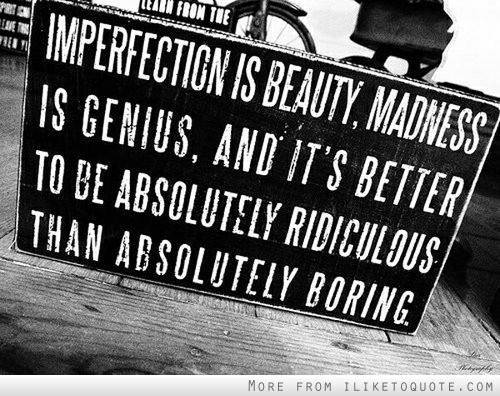by Naomi L. | July 18, 2016 | Blog, Word of the Week |
Word: nihilism
Pronunciation: NY-ə-li-zəm / NEE-ə-li-zəm
Part of Speech: noun
Definition: the rejection of all religious and moral principles, often in the belief that life is meaningless
Source: Oxford Dictionaries
Fear not, the inspiration for today’s Word of the Week did not come from a personal crisis or anything of the sort. I actually came across the adjective form of this word while reading a character description from one of my favorite video games (the very mention of which would make this post a spoiler for said game). The character in question, according to speculation among players, was once quite dedicated to scientific work, but since becoming aware that he exists within a repeating timeline, gradually deteriorated into a lazy and skeptical shell of his former self. Believing that nothing he does matters as another reset of the timeline will undo it all, it’s easy to see how the poor guy has succumbed to such “nihilism”!
“Nihilism” is the rejection of all moral and religious principles, often resulting from the belief that life is meaningless. The word arose in the early 19th century as the German noun Nihilismus, a term coined/popularized by the German philosopher Friedrich Heinrich Jacobi. This noun stems from the Latin noun nihil, meaning “nothing”.
Aside from its primary meaning, “nihilism” also has a couple of sub-definitions in philosophy and history. Philosophically, it means “extreme skepticism maintaining that nothing in the world has a real existence”, while historically, “Nihilism” refers to “the doctrine of an extreme Russian revolutionary party c.1900, which found nothing to approve of in the established social order”. Also note the other forms of the word “nihilism”: the noun “nihilist” (“a person who believes that life is meaningless and rejects all religious and moral principles”) and the adjective “nihilistic” (“rejecting all religious and moral principles in the belief that life is meaningless”). Today, the word seems to be most commonly used as a synonym for “skepticism” and, in religious contexts, “atheism”. If you write characters who have completely given up on life and choose to abandon all principles, you may be touching on some “nihilism” in your stories!
What are your thoughts on this word? Any suggestions for future “Word of the Week” featured words?
by Naomi L. | July 15, 2016 | J.C. Wolfe's Writing, Poetry |
My darling baby sister,
You’ve always been to me
A gift sent from above,
The baby of the family.
My lovely baby sister,
You know this is a crime,
The way you’re getting older
Like you’re fast-forwarding time?
Adoring baby sister,
I wish you’d understand
Growing up is overrated,
Nothing special, nothing grand.
And yet, dear baby sister,
I know this to be true:
You’ve finally come of age,
And there’s nothing I can do.
So maybe this, sweet sister,
Is what you’ve been waiting for:
A time when I can’t see you
As a baby anymore.
But know, my darling sister,
That I love you anyway.
May you have a great adult life
And a wonderful birthday!
Happy Birthday to my awesome baby sister! Stay sweet, and know that no matter how old you get, I’ll always love you!
by Naomi L. | July 13, 2016 | Blog, Creative Writing |
Why not go for another round of Silver Threading and Ronovan Writes‘s Writers Quote Wednesday Writing Challenge? With the end of my graduate program in sight and my busiest days just ahead of me, I need some creative inspiration now more than ever!

The theme for this week was beauty, and the quote I chose is one commonly misattributed to Marilyn Monroe:

Imperfection is beauty, madness is genius and it’s better to be absolutely ridiculous than absolutely boring. – Marilyn Monroe (?)
This quote is often credited to Ms. Monroe in lists of inspirational celebrity sayings, but the truth is I haven’t yet been able to confirm its true source. Still, bumper-stickery as it sounds, I thought it would make great inspiration for a short poem about my favorite kind of beauty: individuality! Enjoy!
Don’t Be Boring, Be Beautiful
Don’t be perfect,
Because perfection is dull.
Be imperfect,
And see the unique beauty all around you.
Don’t be sane,
Because sanity is overrated.
Be a little crazy,
And discover the genius ideas in the world.
Don’t be serious,
Because seriousness is grim.
Be ridiculous,
And enjoy the excitement in life.
Don’t be boring.
Be imperfect,
Crazy,
Ridiculous,
Beautiful.
Because imperfection is beauty,
Madness is genius,
And it’s better to be
Absolutely ridiculous than
Absolutely boring.
I hope you enjoyed my poem! Be sure to join the Writers Quote Wednesday Writing Challenge and share your quote-inspired works! Thanks for reading!
Writers Quote Wednesday Writing Challenge is a weekly blogging event by Colleen Chesebro of Silver Threading in collaboration with Ronovan Hester of Ronovan Writes. Be sure to check out both these authors’ blogs for your weekly dose of inspiration! Happy writing!
by Naomi L. | July 11, 2016 | Blog, Word of the Week |
Word: terpsichorean
Pronunciation: tərp-si-kə-REE-ən / tərp-si-KOH-ree-ən
Part of Speech: adjective; noun
Definition:
- (adj.) of or relating to dancing
- (n.) a dancer
Source: Oxford Dictionaries
Remember that word from Rango that I shared a while back? Well, today’s vocabulary entry features the other uncommon word from the name of his theater group! We’ve already learned from the context of this scene that a “thespian” is an actor, though its name also implies that said group of actors has another talent. It seems in a show put on by a group called “Madam Lupone’s Terpsichorean Troupe of Traveling Thespians”, the Inbred Rodents could have expected to see some dancing too!
Anything described as “terpsichorean” relates to dancing, while a “terpsichorean” is a dancer. The word arose in the early 19th century and derives from the name of the Greek and Roman goddess Terpsichore, the Muse of lyric poetry and dance. The name Terpsichore is originally Greek and literally means “delighting in dancing”.
Same as with the word “thespian”, “terpsichorean” takes its name from a figure in Greek lore, though in this case she was a goddess and a Muse as opposed to a poet. Notably, the name Terpsichore was used in the 18th century to denote a female dancer, and since the 19th century has evolved into a word referring to all dancers or the art of dance in general. Also similarly to “thespian”, “terpsichorean” is classified by Oxford Dictionaries as a “formal or humorous” word, possibly making it a good choice for satirical writing. If your characters often engage in the art of dancing, “terpsichorean” is an excellent word to keep on your list!
What are your thoughts on this word? Any suggestions for future “Word of the Week” featured words?
by Naomi L. | July 8, 2016 | Flash Fiction, J.C. Wolfe's Writing |
(What If? Exercise: Read the description here.)
The wind carried the little seeds into a gray field.
There they landed, in the middle of the grass.
Days and nights of sun and rain passed.
Until at last, the first sprouts appeared.
One by one, bright flowers blossomed.
Soon, the field was alive.
Grays turned to colors.
A beautiful sight.
Magical field.
Rainbow.
This piece is based on What If? Exercise 93: “Ten to One”. The exercise is to write a 55-word story in which the first sentence has ten words, the second has nine, etc., until the last sentence has only one word. The objective is to show that precision and thrift in writing can produce surprisingly powerful results. I hope you enjoy what I’ve written. Thanks for reading!
Back to the story




Recent Comments